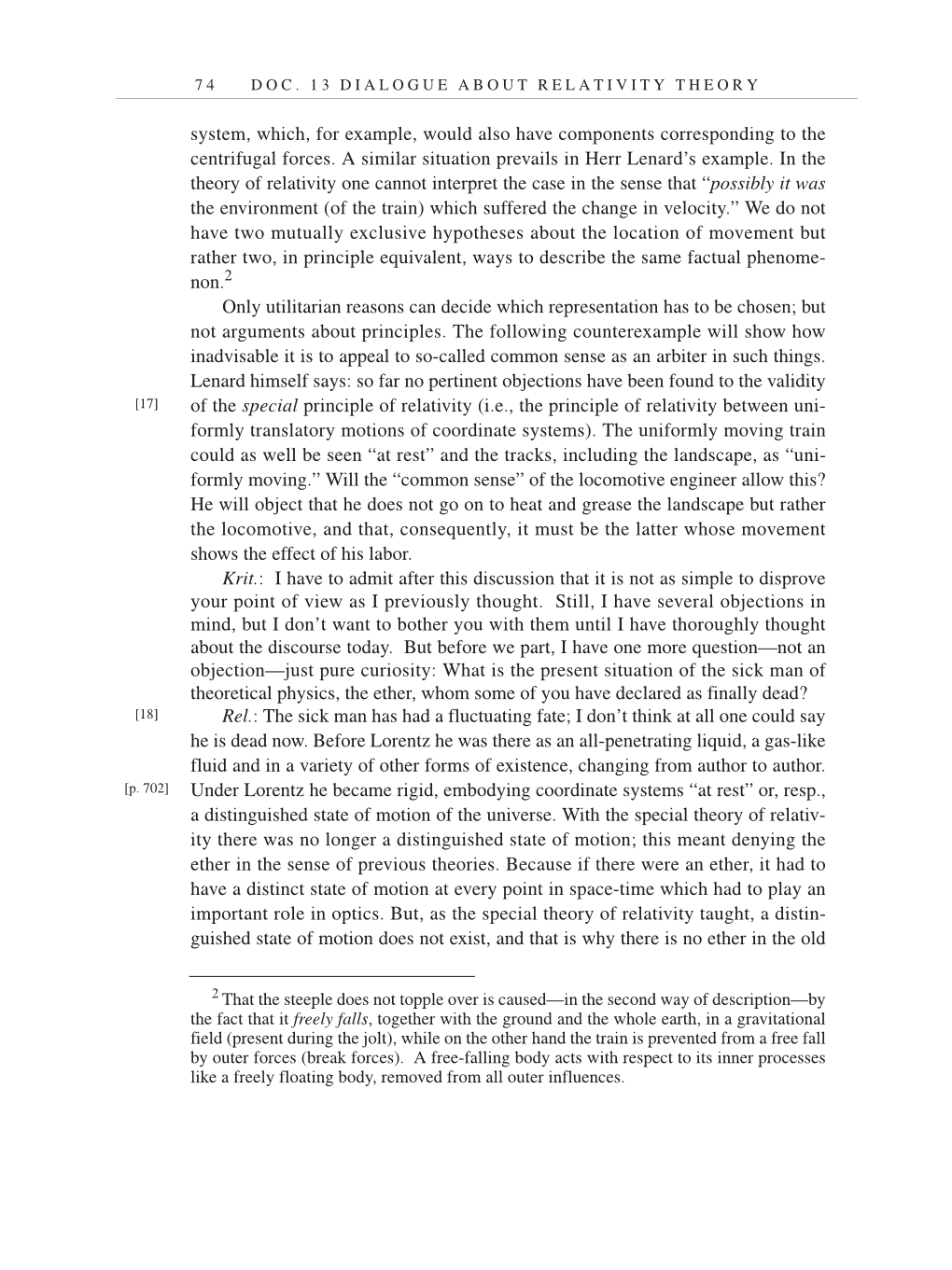7 4 D O C . 1 3 D I A L O G U E A B O U T R E L A T I V I T Y T H E O R Y
system, which, for example, would also have components corresponding to the
centrifugal forces. A similar situation prevails in Herr Lenard’s example. In the
theory of relativity one cannot interpret the case in the sense that “possibly it was
the environment (of the train) which suffered the change in velocity.” We do not
have two mutually exclusive hypotheses about the location of movement but
rather two, in principle equivalent, ways to describe the same factual phenome-
non.2
Only utilitarian reasons can decide which representation has to be chosen; but
not arguments about principles. The following counterexample will show how
inadvisable it is to appeal to so-called common sense as an arbiter in such things.
Lenard himself says: so far no pertinent objections have been found to the validity
of the special principle of relativity (i.e., the principle of relativity between uni-
formly translatory motions of coordinate systems). The uniformly moving train
could as well be seen “at rest” and the tracks, including the landscape, as “uni-
formly moving.” Will the “common sense” of the locomotive engineer allow this?
He will object that he does not go on to heat and grease the landscape but rather
the locomotive, and that, consequently, it must be the latter whose movement
shows the effect of his labor.
Krit.: I have to admit after this discussion that it is not as simple to disprove
your point of view as I previously thought. Still, I have several objections in
mind, but I don’t want to bother you with them until I have thoroughly thought
about the discourse today. But before we part, I have one more question—not an
objection—just pure curiosity: What is the present situation of the sick man of
theoretical physics, the ether, whom some of you have declared as finally dead?
Rel.: The sick man has had a fluctuating fate; I don’t think at all one could say
he is dead now. Before Lorentz he was there as an all-penetrating liquid, a gas-like
fluid and in a variety of other forms of existence, changing from author to author.
Under Lorentz he became rigid, embodying coordinate systems “at rest” or, resp.,
a distinguished state of motion of the universe. With the special theory of relativ-
ity there was no longer a distinguished state of motion; this meant denying the
ether in the sense of previous theories. Because if there were an ether, it had to
have a distinct state of motion at every point in space-time which had to play an
important role in optics. But, as the special theory of relativity taught, a distin-
guished state of motion does not exist, and that is why there is no ether in the old
2
That the steeple does not topple over is caused—in the second way of description—by
the fact that it freely falls, together with the ground and the whole earth, in a gravitational
field (present during the jolt), while on the other hand the train is prevented from a free fall
by outer forces (break forces). A free-falling body acts with respect to its inner processes
like a freely floating body, removed from all outer influences.
[17]
[18]
[p. 702]
